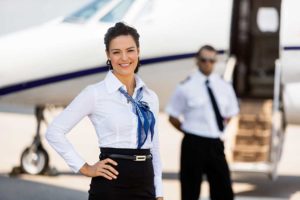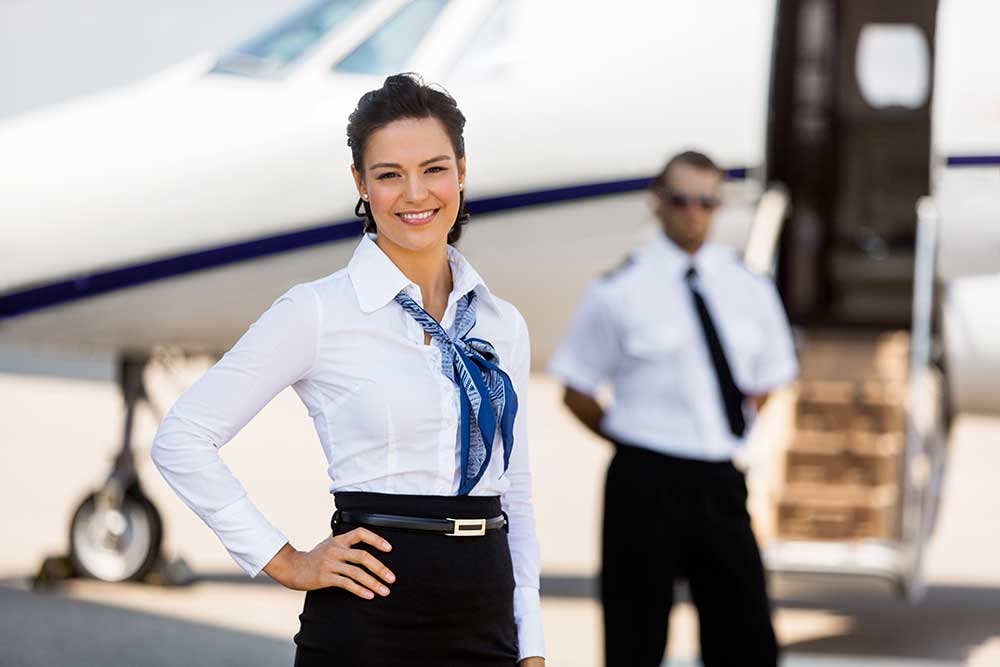Disclaimer: The information on our website is provided for general information purposes only. We make no representations or warranties of any kind, express or implied, about the completeness, accuracy, reliability, suitability or availability with respect to the website or the information contained on our website for any purpose. Any reliance on such information is therefore strictly at your own risk and we are not liable for any damages or losses arising out of or resulting from your reliance on any information contained on our website.
A flight attendant is typically employed by airlines. Additionally, they are mandated by federal law to ensure that safety instructions are provided on the flight. Flight attendants also greet passengers as they board the plane, direct them to their seats, ensure carry-on items are stowed, and follow safety procedures. Next, let’s watch a video to learn what a flight attendant does.
How to Become a Flight Attendant

Flight attendants need a minimum of a high school diploma or the equivalent to obtain a job with an airline. However, many airlines are now preferring to hire candidates with some college background. Some employees look for applicants with a degree in tourism, business, public relations, communications, hospitality, and social science. If you are hired to work on international flights, you may need to be fluent in a foreign language. You may also attend flight attendant school.
In addition to education requirements, 1-2 years of work experience with a background in a service occupation (such as hotels or sales) is typically expected to gain employment as a flight attendant. After a flight attendant is employed, airlines place the employee in their initial training program that lasts 6-8 weeks in their flight training center which is mandatory for certification by the Federal Aviation Administration (FAA). Candidates complete training by going on practice flights and are then given the FAA Certificate of Demonstrated Proficiency. In addition, you must pass the height and weight requirements and pass the medical and drug testing exams.
Job description of a Flight Attendant
A flight attendant typically has pre-flight briefings with the pilots and conducts inspections of safety equipment before take-off. They also educate passengers on the use of the airline’s safety equipment and emergency equipment and procedures. Additionally, they check that all passenger’s seat belts are fastened and carry-on baggage is secured in its proper place.
A flight attendant may also serve or sells snacks, beverages, or meals during the flight. They are also responsible to care for passengers with special needs. Additionally, if the aircraft should encounter any turbulence during the flight, they reassure passengers. They administer emergency medical care if necessary and if an emergency should arise, they provide direction to the passengers, including the evacuation procedure of the aircraft.
Flight Attendant Career Video Transcript
The opportunity to travel attracts many flight attendants to their careers. That opportunity comes with serious responsibilities for the safety of passengers and other airline personnel. Flight Attendants greet passengers, help them find their seats, and stow their bags, serve meals, and cope with turbulence, airsickness, and disruptive travelers.
To keep passengers safe, flight attendants also instruct passengers in the use of equipment like seat belts and oxygen masks and are ready to help passengers evacuate in an emergency landing. Flight attendants work nights, weekends, and holidays especially early on in their careers because more experienced staff usually fly the most desirable routes and schedules.
A high school diploma is generally required to enter the field. While each airline has specific requirements, in general, candidates should be in excellent health, able to speak clearly, and be willing to relocate. Travel experience, customer service skills, and speaking a foreign language would all be an advantage. Candidates could expect several weeks of concentrated training and many months of serving as a substitute attendant before working full time. This career requires confidence, reliability, and graciousness because for most passengers, the flight attendant is the face of the airline.
Article Citations
Bureau of Labor Statistics, U.S. Department of Labor, Occupational Outlook Handbook, Flight Attendants.
National Center for O*NET Development. 39-6031.00. O*NET OnLine.

